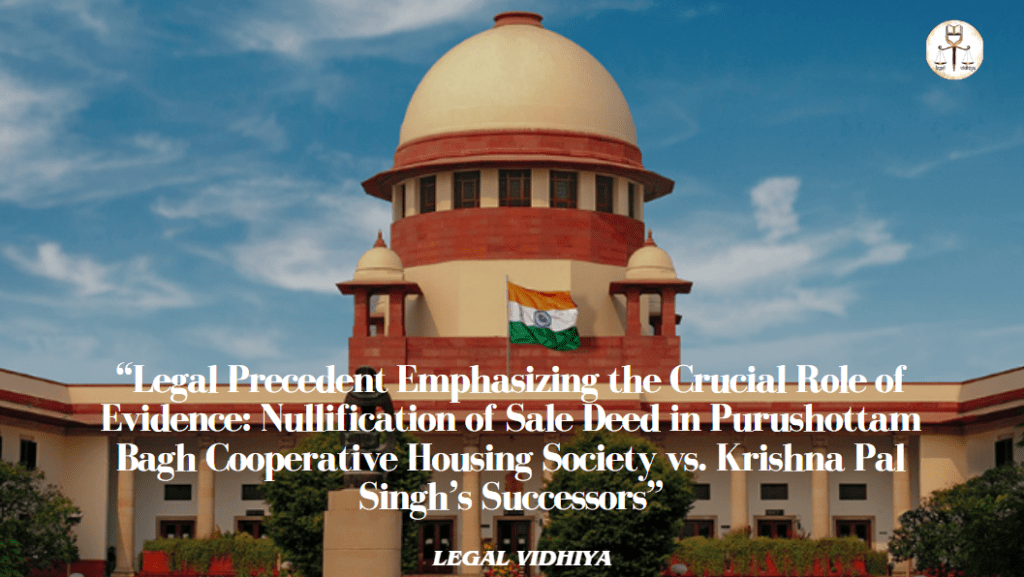
The case revolves around a residential society, Purushottam Bagh (residential) Sahkari Awas Samiti Ltd., in Agra, formed under the U.P. Cooperative Societies Act, 1965. In 1983, a plot was allotted to Krishna Pal Singh based on an affidavit stating he had no property in the society’s operational area. After 26 years, the society initiated arbitration, claiming Krishna Pal Singh had a personal house and obtained the plot dishonestly.
Krishna Pal Singh’s successors contested, arguing the arbitration wasn’t valid under Section 70 of the U.P. Cooperative Societies Act. They asserted their father had complied with regulations, raising a boundary wall after receiving society approval. Despite this, an arbitrator declared the 1983 sale deed null and void, alleging Krishna Pal Singh hadn’t built on the plot.
The successors challenged this In the High Court, asserting that the society failed to prove Krishna Pal Singh’s violation and residency status during the purchase. The court concurred, highlighting the society’s lack of evidence. The judgment emphasized the absence of proof regarding false declarations or property ownership by Krishna Pal Singh, ultimately annulling the sale deed.
The society’s appeal contends Krishna Pal Singh violated bye-laws, submitting a false affidavit. However, the court’s stance rests on the society’s failure to substantiate these claims during arbitration, emphasizing the importance of providing evidence in such legal proceedings.
In conclusion, the judgment underscores the significance of concrete evidence in legal disputes. The case involving the residential society and Krishna Pal Singh’s successors hinged on allegations of false declarations and property violations. The High Court, while acknowledging the society’s claims, ultimately ruled in favor of Krishna Pal Singh’s successors due to the society’s failure to present compelling evidence during arbitration.
The court emphasized that the society did not furnish proof supporting its allegations regarding false declarations or property ownership by Krishna Pal Singh. The judgment highlighted the specific finding that the society failed to provide documentary evidence before the arbitrator, substantiating their claims against the petitioners. As a result, the court declared the sale deed from 1983 null and void.
AREEBA, LLYOD LAW COLLEGE, First Year Legal Journalism intern at Legal Vidhiya
Disclaimer: The materials provided herein are intended solely for informational purposes. Accessing or using the site or the materials does not establish an attorney-client relationship. The information presented on this site is not to be construed as legal or professional advice, and it should not be relied upon for such purposes or used as a substitute for advice from a licensed attorney in your state. Additionally, the viewpoint presented by the author is of a personal nature.




0 Comments